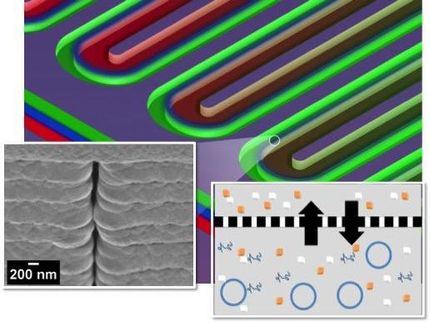VaxGen Opens Biopharmaceutical Manufacturing Facility in South San Francisco
Advertisement
VaxGen today announced that it has opened its new biopharmaceutical manufacturing facility in South San Francisco, Calif. The facility includes 17,000 square feet for the production of complex proteins made through recombinant bacterial fermentation and mammalian cell culture. This type of manufacturing is used to make vaccines, monoclonal antibodies and therapeutic proteins. The new facility is designed to manufacture VaxGen's anthrax vaccine and AIDS vaccine candidates, as well as other biopharmaceuticals.
"The dedication of this state-of-the-art manufacturing facility is a significant milestone for VaxGen," said Lance K. Gordon, Ph.D., VaxGen's chief executive officer. "It adds an important component to our late-stage product development capability, including the capacity for commercial manufacturing. This is an asset that few other development-stage biopharmaceutical companies share. With process development activities underway, the facility is already supporting a U.S. government contract to develop a recombinant anthrax vaccine."
The development of VaxGen's South San Francisco facility is part of VaxGen's broader manufacturing strategy, which includes Celltrion, Inc., a joint venture between VaxGen and South Korean partners Nexol Corp., KT&G and J. Stephen & Co. Ventures Ltd. Under this joint venture, a 23-acre biologics manufacturing facility is under development in Incheon, South Korea. "I believe this puts VaxGen in an excellent position not only to develop its own products but to partner with other biopharmaceutical companies," Gordon said.
The plant is being dedicated today. Attendees at the dedication ceremony are expected to include South San Francisco Mayor Pedro Gonzalez, Congresswoman Nancy Pelosi's Deputy District Director Dan Bernal, Congressman Tom Lantos' representative Derek Myers, and State Assemblymember Gene Mullin's District Director Geraldine O'Connor.
Adjacent to the company's research and development building, the South San Francisco facility is designed to manufacture biopharmaceuticals under current Good Manufacturing Practice (cGMP). The cGMP suites include 1,000-liter, 200-liter and 20-liter bioreactors as well as downstream processing. An additional 30,000 square feet are available to support production and quality control operations and allow for additional cGMP capacity.
In addition to using the South San Francisco facility for the development and production of its own products, VaxGen intends to train Celltrion personnel in U.S. cGMP-compliant biologics manufacture as part of its technology transfer agreement with Celltrion. The joint venture is funding the development of the much larger biopharmaceutical manufacturing facility in South Korea, which Celltrion plans to use to provide large-scale contract manufacturing services to companies in the U.S., Asia and Europe.
"The capabilities of these facilities represent strong vehicles for the growth of both VaxGen and Celltrion," said James P. Panek, VaxGen's senior vice president of Manufacturing Operations and co-CEO of Celltrion. "With technology and training from VaxGen and the dedication and resources of our South Korean partners, we believe we can build extremely efficient and effective biopharmaceutical manufacturing operations."
Production of vaccines and other biologic products for clinical trials will begin at the South San Francisco facility once manufacturing processes are tested and validated, which VaxGen anticipates completing by the end of the third quarter of this year.
Other news from the department business & finance
These products might interest you
Most read news
More news from our other portals
See the theme worlds for related content
Topic world Antibodies
Antibodies are specialized molecules of our immune system that can specifically recognize and neutralize pathogens or foreign substances. Antibody research in biotech and pharma has recognized this natural defense potential and is working intensively to make it therapeutically useful. From monoclonal antibodies used against cancer or autoimmune diseases to antibody-drug conjugates that specifically transport drugs to disease cells - the possibilities are enormous

Topic world Antibodies
Antibodies are specialized molecules of our immune system that can specifically recognize and neutralize pathogens or foreign substances. Antibody research in biotech and pharma has recognized this natural defense potential and is working intensively to make it therapeutically useful. From monoclonal antibodies used against cancer or autoimmune diseases to antibody-drug conjugates that specifically transport drugs to disease cells - the possibilities are enormous





























































